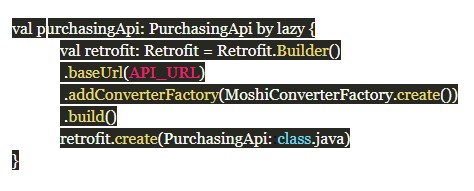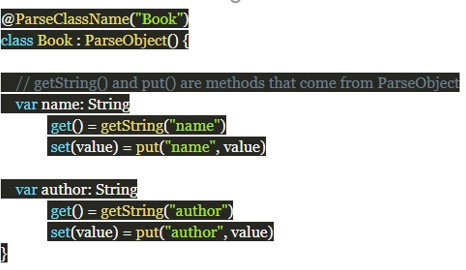Add an edge to your development experience with Kotlin by picking our most valuable tips to make your Android Kotlin mobile app development stand out from the crowd!
Kotlin is now considered the official language for Android app development. While Java has ruled Android development for an entire decade as its core programming language, it was recently replaced by Kotlin as the preferred language for Android app development. Kotlin brings modern techniques & capabilities that follow the latest trends and help meet the rising customer expectations from mobile apps.
Thanks to Kotlin programming language and environment, the development process becomes so easy. While many incredible features make Kotlin a pleasure to work with, you should spend a few minutes to know the basics of Kotlin to get to a great final product.
Important Kotlin Tips for Android App Development
1. Start New Projects Quickly
The start of a new project seems very simple when it comes to developing your Android app with Kotlin. You should tap on File, pick a new plan and that is it, you’re all set to go. Pick the installed Android SDK version, and you’ll see that most default choices fit flawlessly with what you must do, and press enter.
2. Lazy Loading
Lazy loading can bring about more efficiency to mobile memory usage as we possibly load the resource into memory if it is called upon. This is especially helpful in using Kotlin for an Android application rather than a server application. For Android applications, lazy loading is significantly used to reduce app startup time to make sure that users see the app content faster.
For instance, if you are developing a shopping application, and there is a possibility that users will browse your collection, you could have the actual buying API be lazy-loaded:

3. Lambdas
Lambdas lessen lines of code in a source file and make programming more comfortable and productive. While lambdas are presently possible with Android, Kotlin mobile app development makes them one step ahead by guaranteeing that you don’t need to manage Retrolambda or change the way your development is done.
For instance, an on-click audience would be like:

Also, it works with return values:

Android SDK covers plenty of cases where you are setting an audience or executing a single strategy. Lambdas work incredibly in those conditions.
4. Converting Java Code to Kotlin
There are a lot of approaches to do this; for one, you must open the primary activity.java record. Second, select “Convert java file to Kotlin file.” This should be possible effectively via scanning for actions. You can likewise do it with the use of alternate ways that are generally existing in the menu section.
5. Null Safety
If you’ve heard everybody discussing the null safety in Kotlin mobile app development, that is for a valid justification. The null in Kotlin is probably the best component that makes developers’ lives significantly more comfortable. They wipe out the threats of invalid references from the app.
For this, Kotlin uses a tape system that can distinguish between nullable references and non-null references. This makes your job easy as a developer when your references are to be null, helping you abstain from running into NPEs or null pointer exceptions.
6. Custom Getters and Setters
Custom getters and setters use a model structure on Kotlin; how it encourages to get and set the fields that have been indicated. If there should be an occurrence of non-class factors, which are stored and recovered in some redid way like JSON, happen when custom models are utilized for hardly any systems, for example, Parse SDK.
We can ease the access with custom-defined getters and setters:

This worth appears to be a lot like what is realistic with the use of other model’s access syntax. Moreover, just by modifying your code, you can change your model from Parse to another information source.
7. Object Expressions
At the point when the static occurrence is stored or avowing a constructor as private, you can run into the issue of scrambling. Object expressions enable strict singleton definition with the goal that they won’t be confused with a class that can be exemplified.
8. Safe Typecasting
There are times when you require safe typecasting, for example, at times when Android shows cause a particular case. Preferably, while making a section in action, you first need to run a check whether it already exists using a Fragment Manager. If not, you can undoubtedly make it and afterward add it to action.
9. Collection Filtering
When working with APIs, there are a few collections you must manage. Frequently, it would be best if you altered or possibly filter the gathered content. The collection filtering feature of Kotlin is valuable in accomplishing this, as it offers clarity to your code, making it concise. Having a filter even helps in foreseeing what will be there in your new list. Collection filtering is of extraordinary help when you work with a team.
With collection filtering, it’s easy to determine what your subsequent list ought to contain as the following:

Filtering a collection with built-in Kotlin techniques is identical to other useful programming languages as well, for example, Java 8 streams or Swift assortment types. Having an option to filter collections in a unified manner helps when conversing with colleagues about what tasks should be done to get a list of the specific components to demonstrate.
To Conclude
These were the few best tips that we have used in our Kotlin mobile app development so far and advise you as well to use in your Android app development. On top of this, if you’re looking for Kotlin App Development, you can find the best android app development companies. Are we missing any of the essential tips that should be mentioned here? Do share with us in the comments section below.

